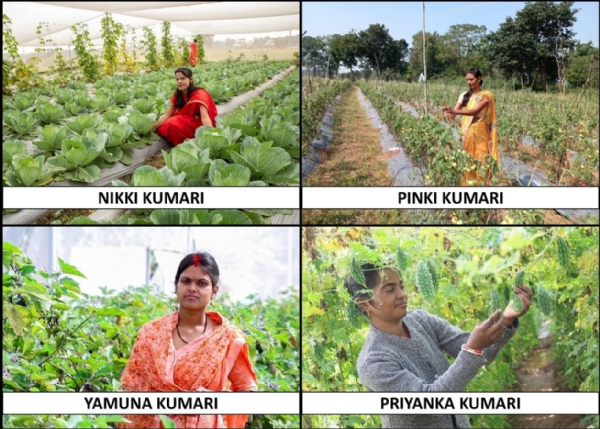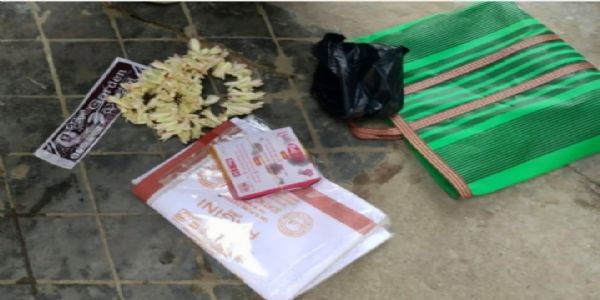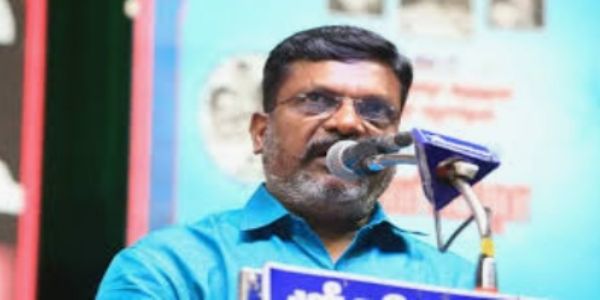
Lucknow,
07 March (HS): ‘For all women and girls: Rights, equality, and empowerment,’ is
the theme for this year’s International Women's Day, underscoring the need for
gender parity across all major sectors. In India, an agrarian economy at its
core, one critical area requiring attention is the empowerment of women in
farming. Traditionally, men have handled ploughing and tasks requiring physical
strength, while the immense contributions of women in agriculture often went
unrecognised. However, this is changing. According to the report Gender
Perspective in Agriculture by Krishi Vistar, women farmers play a crucial role
in the agricultural sector and the rural economy. The sector employs 80 per
cent of all economically active women, with women making up 33 percent of the
agricultural labour force and 48 per cent of self-employed farmers.
Recently,
we have also witnessed significant strides by leading NPOs working to
strengthen women’s representation in agriculture. One such initiative is the
Millionaire Farmers Development Programme (MFDP) launched by solution designers
Transform Rural India (TRI). On this International Women’s Day, let us take a
closer look at the inspiring journeys of four millionaire farmers, the
challenges they have overcome, and how MFDP has enabled them to make a lasting
impact in their communities.
Pinki
Kumari from Fadilmarcha, Jharkhand: Fondly called ‘Pinki Didi ’ by her fellow
villagers, Pinki Kumari’s journey to becoming a millionaire farmer is a
testament to her determination and willingness to embrace new technologies.
Born and raised in Fadilmarcha village, Ranchi, Pinki always had a deep
connection with farming. However, despite her family’s hard work, their annual
income was a modest Rs 2.45 lakh, barely enough to cover necessities. One of
the key challenges was low yield due to reliance on traditional farming
methods. After joining the MFDP, Pinki changed her approach to farming. She
mastered techniques such as drip irrigation, intercropping, grafted vegetable
cultivation, mulching, advanced pest management and mixed cropping. “I realised
that adopting techniques like grafting could triple the yield,” she says.
Today, she stands as a millionaire farmer, inspiring not just her village but
also neighbouring communities with her success.
Nikki
Kumari from Nagri, Jharkhand: “Farming, when approached with the right
techniques and sustainability in mind, can yield excellent results. I never
imagined I would be able to buy a scooter. But with hard work and an open mind,
anyone can achieve this,” says Nikki Kumari. Hailing from Purana Pani village
in Ranchi, Nikki owned 6-7 acres of cultivable land. However, her reliance on
traditional farming methods resulted in minimal profits, making it difficult to
make ends meet. However, the MFDP proved to be a turning point in her journey.
Through the programme, she received training in modern agricultural techniques,
including crop selection, land preparation, nursery management and the use of
micronutrients.
She
later adopted multi-tier farming, expanding beyond brinjal and tomatoes to
cultivate French beans, green peas, cabbage, green chillies, trellis crops and
biofortified sweet potatoes. With an investment of Rs six lakh per season, she
now earns Rs 12-13 lakh annually. Today, Nikki is a role model in her village,
with fellow farmers frequently visiting her to learn from her innovative farming
techniques.
Yamuna
Kumari from Bero, Jharkhand: Balancing postgraduate studies with farming is no
easy feat, but for this 23-year-old from Bero, Jharkhand, it was a challenge
worth taking. While pursuing a degree in Geography at KCB College, she remained
deeply committed to agriculture. Her association with TRI proved
transformative, enabling her to establish a Farmer Field School (FFS) and gain
expertise in polyhouse farming, nursery management, mulching, drip irrigation,
and trellis systems.
Equipped
with this knowledge, she expanded her agricultural practices, cultivating mango
orchards, wheat, French beans, potatoes, grafted brinjal, marigold,
cauliflower, green peas, ginger, green chillies and strawberries. This shift
significantly increased her annual income to Rs 10-11 lakh, strengthening her
family’s financial stability. “I realised from the training that adopting new
methods and using the right fertilizers and seeds will help in earning a better
income, says Yamuna. Beyond her achievements, Yamuna has now become a
mentor, particularly for women farmers, guiding them in adopting advanced
techniques and building sustainable livelihoods.
Priyanka
Kumari from Gola, Jharkhand: “Women are not just helpers, we are leaders in
farming and beyond. We can cultivate crops, businesses, and a better future for
ourselves and our families.” These words come from Priyanka Kumari of Lipiya
village, Jharkhand, who grew up in a farming family but faced several
challenges that kept their earnings low. Despite owning five acres of land,
traditional farming methods limited their yield until she joined the MFDP.
Through this initiative, she learned advanced agricultural techniques,
including high-yield seed selection, soil health management, efficient
irrigation, crop diversification and market linkages. She launched multi-crop
farming, growing potatoes, bottle gourd, cauliflower, brinjal, green peas,
green chillies, onions, tomatoes, mango plantations, and trellis crops. This
shift increased her annual income from Rs 2.15 lakh to Rs 10.15 lakh.
For
the villagers, her story is about more than just financial success, it is about
breaking stereotypes and taking leadership initiative in a traditionally
male-dominated rural community.
Hindusthan Samachar / Abhishek Awasthi








